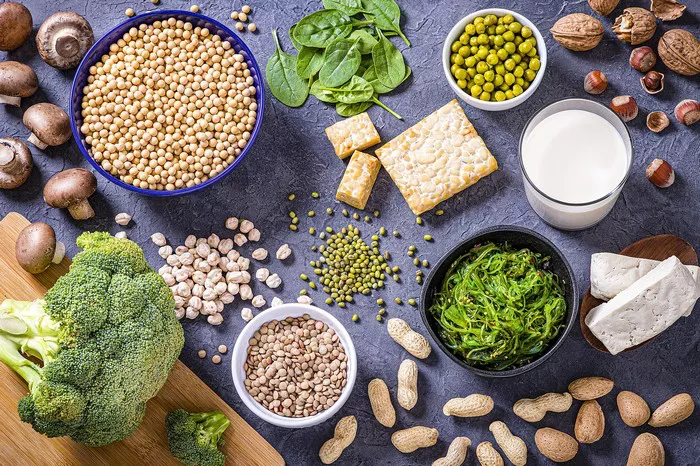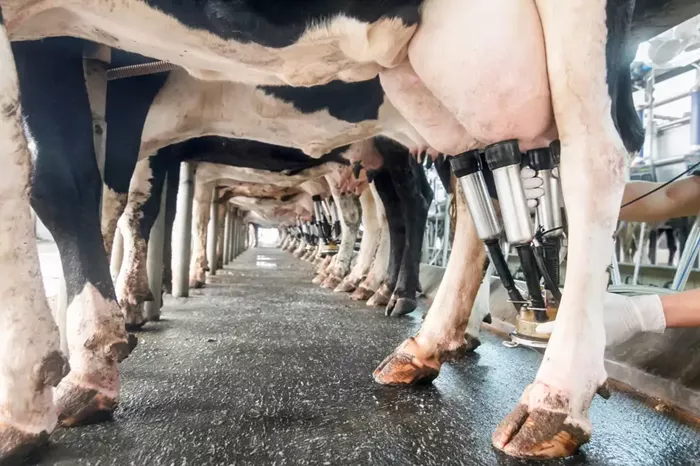Protein is a vital macronutrient essential for building muscle, repairing tissue, and supporting overall health. While meat is a well-known source of protein, many individuals seek non-meat alternatives due to dietary preferences, ethical concerns, or health reasons. Fortunately, there are numerous plant-based and other non-meat protein sources available. This article explores the best non-meat sources of protein, their benefits, and how to incorporate them into a balanced diet.
The Importance of Protein
Role in the Body
Protein plays several crucial roles in the body:
Muscle Repair and Growth: Protein is essential for muscle repair and growth, making it crucial for athletes and those engaging in regular physical activity.
Enzyme and Hormone Production: Proteins are building blocks for enzymes and hormones that regulate various bodily functions.
Immune Function: Antibodies, which are proteins, help the immune system fight off infections.
Energy Source: While not the primary energy source, protein can be used for energy if carbohydrates and fats are insufficient.
Daily Protein Requirements
The recommended dietary allowance (RDA) for protein varies based on age, sex, and activity level. On average:
Adults: 46 grams per day for women and 56 grams per day for men.
Athletes: May require up to 1.2 to 2.0 grams of protein per kilogram of body weight to support muscle repair and growth.
Best Non-Meat Sources of Protein
Legumes
Legumes are a rich source of plant-based protein and include beans, lentils, chickpeas, and peas.
Beans
Black Beans, Kidney Beans, and Pinto Beans: These varieties offer about 15 grams of protein per cooked cup. They are also high in fiber, which aids digestion and helps maintain blood sugar levels.
Soybeans (Edamame, Tofu, Tempeh): Soybeans are a complete protein, meaning they contain all nine essential amino acids. Edamame offers about 17 grams of protein per cooked cup, tofu provides 10 grams per half-cup, and tempeh contains about 21 grams per cup.
Lentils
Brown, Green, and Red Lentils: Lentils provide around 18 grams of protein per cooked cup. They are also a good source of iron and folate, essential for red blood cell production and overall health.
Nuts and Seeds
Nuts and seeds are excellent sources of protein, healthy fats, and various vitamins and minerals.
Almonds
Protein Content: Almonds provide about 6 grams of protein per ounce (approximately 23 almonds). They are also rich in vitamin E, an antioxidant that protects cells from damage.
Chia Seeds
Protein Content: Chia seeds offer about 4 grams of protein per two tablespoons. They are also high in omega-3 fatty acids, fiber, and calcium.
Hemp Seeds
Protein Content: Hemp seeds contain about 10 grams of protein per three tablespoons. They are a complete protein and also provide a good amount of magnesium and iron.
Pumpkin Seeds
Protein Content: Pumpkin seeds provide about 7 grams of protein per ounce. They are rich in zinc, which supports immune function.
Whole Grains
Whole grains are a valuable source of protein, fiber, and essential nutrients.
Quinoa
Protein Content: Quinoa offers about 8 grams of protein per cooked cup. It is a complete protein and provides a range of vitamins and minerals, including magnesium, iron, and manganese.
Brown Rice
Protein Content: Brown rice provides about 5 grams of protein per cooked cup. It is also a good source of complex carbohydrates and fiber.
Oats
Protein Content: Oats offer about 6 grams of protein per cooked cup. They are also rich in soluble fiber, which helps lower cholesterol levels.
Vegetables
While vegetables are not as protein-dense as legumes or nuts, some varieties are surprisingly high in protein.
Broccol
Protein Content: Broccoli provides about 3 grams of protein per cooked cup. It is also rich in vitamins C and K, as well as fiber.
Spinach
Protein Content: Spinach offers about 5 grams of protein per cooked cup. It is a good source of iron, calcium, and various antioxidants.
Dairy and Eggs
For those who include animal by-products in their diet, dairy and eggs are excellent protein sources.
Greek Yogurt
Protein Content: Greek yogurt contains about 10 grams of protein per 100 grams. It also provides probiotics, which support gut health.
Cottage Cheese
Protein Content: Cottage cheese offers about 14 grams of protein per half-cup. It is also high in calcium and selenium.
Eggs
Protein Content: One large egg provides about 6 grams of protein. Eggs are a complete protein and contain essential nutrients like choline and vitamin B12.
Protein-Rich Alternatives
Plant-based protein alternatives have become increasingly popular and offer a convenient way to increase protein intake.
Seitan
Protein Content: Seitan, made from gluten, provides about 21 grams of protein per 3-ounce serving. It has a texture similar to meat, making it a popular choice for vegetarians and vegans.
Protein Powders
Varieties: Plant-based protein powders, such as pea protein, hemp protein, and rice protein, offer convenient ways to boost protein intake. They can be added to smoothies, baked goods, and other recipes.
Benefits of Non-Meat Protein Sources
Health Benefits
Non-meat protein sources offer numerous health benefits:
Lower Risk of Chronic Diseases: Diets rich in plant-based proteins are associated with a lower risk of heart disease, hypertension, and type 2 diabetes.
Weight Management: High-fiber plant proteins can help with weight management by promoting satiety and reducing overall calorie intake.
Digestive Health: Plant-based proteins are typically high in fiber, which supports healthy digestion and regular bowel movements.
Environmental Benefits
Choosing non-meat protein sources also benefits the environment:
Lower Carbon Footprint: Plant-based foods generally have a lower carbon footprint compared to animal products, helping to reduce greenhouse gas emissions.
Reduced Water Usage: Producing plant-based proteins typically requires less water than raising livestock.
Sustainable Farming: Many plant-based protein sources can be grown sustainably, reducing soil degradation and preserving biodiversity.
Incorporating Non-Meat Proteins into Your Diet
Meal Planning and Preparation
Incorporating non-meat proteins into your diet can be easy and delicious with some planning:
Breakfast: Start your day with a protein-rich smoothie using plant-based protein powder, or enjoy a bowl of oatmeal topped with chia seeds and nuts.
Lunch: Create salads with a variety of legumes, seeds, and whole grains. For example, a quinoa and black bean salad with avocado and a lemon vinaigrette is both nutritious and satisfying.
Dinner: Use tofu or tempeh as a meat substitute in stir-fries, curries, or pasta dishes. Incorporate lentils into soups or stews for a hearty, protein-packed meal.
Snacks: Keep protein-rich snacks like almonds, pumpkin seeds, or edamame handy for a quick and healthy boost.
Recipes and Cooking Tips
Experimenting with different recipes can make non-meat proteins a regular part of your diet:
Tofu Scramble: Replace scrambled eggs with a tofu scramble, adding vegetables and spices for flavor.
Lentil Tacos: Use seasoned lentils as a filling for tacos, topped with fresh salsa, avocado, and lettuce.
Chickpea Curry: Make a hearty chickpea curry with coconut milk, tomatoes, and spices, served over brown rice or quinoa.
Conclusion
Protein is an essential nutrient that can be found in a variety of non-meat sources, from legumes and nuts to whole grains and vegetables. These protein-rich foods not only support muscle growth and repair but also offer numerous health benefits, including reduced risk of chronic diseases and better digestive health. Moreover, incorporating non-meat proteins into your diet can have positive environmental impacts. By exploring different foods and recipes, you can enjoy a diverse, nutritious, and sustainable diet that meets all your protein needs.
[inline_related_posts title=”You Might Be Interested In” title_align=”left” style=”list” number=”6″ align=”none” ids=”9087,9084,8990″ by=”categories” orderby=”rand” order=”DESC” hide_thumb=”no” thumb_right=”no” views=”no” date=”yes” grid_columns=”2″ post_type=”” tax=””]

































